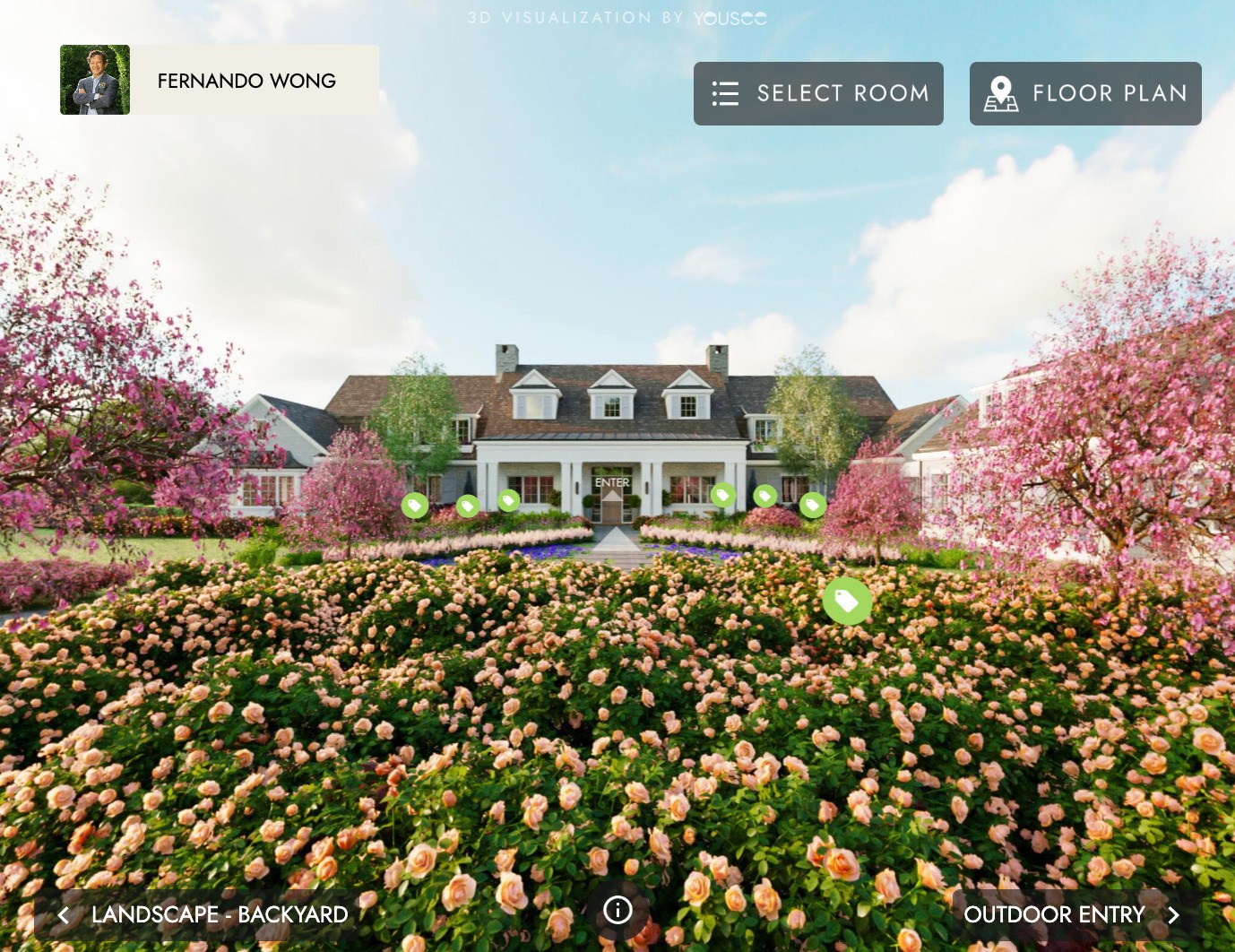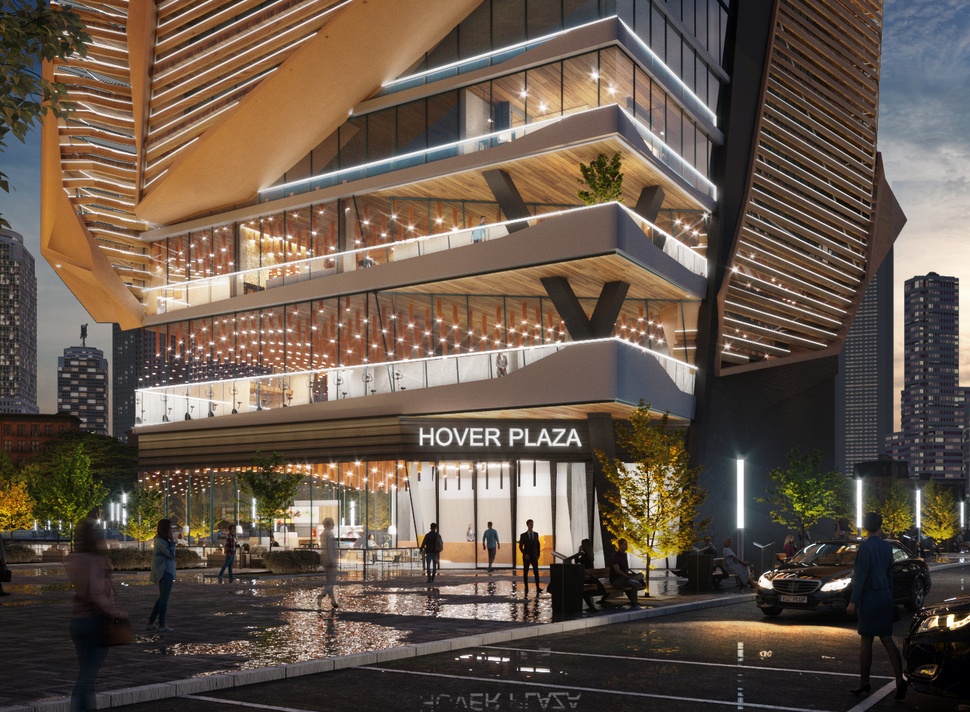The Metaverse and Virtual Events: Redefining Online Interactions
In an era where digital transformation is reshaping every aspect of our lives, the metaverse has emerged as a groundbreaking frontier, revolutionizing how we interact, work, and play online. At the forefront of this paradigm shift is the concept of virtual events, which have found a natural home in the expansive and immersive realm of the metaverse. From corporate conferences to music festivals, these digital gatherings are pushing the boundaries of what's possible in online interactions.
Imagine stepping into a 3D virtual showroom where you can examine products from every angle, interact with knowledgeable avatars, and make purchases without leaving home. This is just one example of how the metaverse redefines the landscape of virtual events, offering experiences that blur the line between the physical and digital worlds.
The Evolution of Virtual Events
Virtual events are not a new concept. They've been around for years, primarily in the form of webinars, online conferences, and live-streamed performances. However, the metaverse has catapulted these events into a new dimension. The flat, two-dimensional interfaces of the past are giving way to rich, three-dimensional environments that users can navigate and interact with in real time.
The global pandemic acted as a catalyst for this evolution. In 2020, when physical gatherings became impossible, the world turned to virtual alternatives. According to Grand View Research, the virtual events market was valued at $94.04 billion in 2020 and is expected to grow at a compound annual growth rate (CAGR) of 23.2% from 2021 to 2028. This explosive growth has paved the way for more innovative and immersive virtual experiences, culminating in the metaverse-driven events we're beginning to see today.
Metaverse: The New Frontier for Virtual Events
The metaverse, a term coined by Neal Stephenson in his 1992 science fiction novel "Snow Crash," refers to a collective virtual shared space created by the convergence of virtually enhanced physical reality and physically persistent virtual space. In simpler terms, it's a network of 3D virtual worlds focused on social connection.

Image from Yousee Studio
The metaverse offers a level of immersion and interaction that was previously unattainable in the context of virtual events. Attendees can create personalized avatars, move through virtual spaces, interact with objects and other participants, and engage in activities that mimic real-world experiences.
For instance, a virtual trade show in the metaverse might feature:
- Interactive booths where attendees can engage with 3D product models
- Virtual meeting rooms for one-on-one conversations with exhibitors
- Holographic presentations by keynote speakers
- Networking lounges where avatars can mingle and exchange virtual business cards
The possibilities are limited only by imagination and technology, advancing rapidly.
The Technology Powering Metaverse Events
Creating immersive metaverse events relies on a complex interplay of cutting-edge technologies. These include:
Virtual Reality (VR) and Augmented Reality (AR): VR headsets like the Oculus Quest 2 and AR devices like Microsoft's HoloLens are becoming increasingly sophisticated, offering more realistic and comfortable experiences. According to Statista, the global AR and VR market is projected to reach $297 billion by 2024, indicating the growing importance of these technologies in shaping the metaverse landscape.
Artificial Intelligence (AI) and Machine Learning (ML) power everything from natural language processing for real-time translation in multilingual events to personalized recommendations for attendees based on their interests and behavior.
Blockchain and Cryptocurrencies: These technologies enable secure transactions within the metaverse, including purchasing virtual goods and event tickets. Non-fungible tokens (NFTs) are also gaining traction, allowing for unique digital assets and experiences within virtual events.
5G and Edge Computing: High-speed, low-latency networks are crucial for delivering seamless, real-time experiences in the metaverse. According to Allied Market Research, the global 5G infrastructure market is expected to reach $47.775 billion by 2027, highlighting the technology's importance in supporting metaverse applications.
Unique Experiences in the Metaverse
The metaverse is not just about replicating real-world events in a digital space; it's about creating experiences that are impossible or impractical in the physical world. Here are some examples of how the metaverse is pushing the boundaries of virtual events:
Transcending Physical Limitations: In a metaverse concert, attendees can experience the music from impossible vantage points – floating above the stage, inside the instruments, or even from the perspective of the performers themselves. Imagine attending a virtual Coachella where you can teleport between stages instantly or dance alongside holographic representations of your favorite artists.

Time Travel and Historical Reenactments: Educational events in the metaverse can transport attendees to different periods or historical events. For example, a history class could involve walking through ancient Rome or witnessing key moments in world history firsthand.
Collaborative World-Building: Some metaverse platforms allow users to create and modify the virtual environment in real time. This opens up possibilities for collaborative art installations, interactive storytelling experiences, and crowd-sourced event design.
Hyper-Personalization: AI-driven personalization in the metaverse can tailor each attendee's event experience. This could mean custom content recommendations, personalized networking opportunities, or even dynamically generated environments based on user preferences.
Gamification and Immersive Learning: Gamifying virtual events in the metaverse can increase engagement and knowledge retention. For example, a corporate training event could involve solving puzzles or completing quests in a virtual environment, making learning more interactive and enjoyable.
The Impact on Industries
The rise of metaverse-powered virtual events is having a profound impact across various industries:
Entertainment: The music and film industries are at the forefront of metaverse adoption. Artists like Travis Scott and Ariana Grande have already held concerts in virtual worlds, attracting millions of attendees. In 2020, Travis Scott's Fortnite concert drew over 12 million concurrent viewers, showcasing the massive potential of these events.
Education: Universities and educational institutions are exploring the metaverse as a platform for immersive learning experiences. For instance, the University of Pennsylvania's Wharton School has created a virtual campus in the metaverse where students can attend classes and collaborate on projects.
Corporate Events: Companies leverage the metaverse from product launches to team-building exercises. In 2021, Microsoft held its annual Ignite conference in a mixed-reality environment, combining physical and virtual elements to create a unique experience for attendees.
Fashion and Retail: Virtual fashion shows and digital storefronts are becoming increasingly popular. Brands like Gucci and Louis Vuitton have already held events and sold digital items in virtual worlds, tapping into the growing market for virtual goods.
Real Estate: The concept of virtual real estate is gaining traction, with companies and individuals purchasing digital land in metaverse platforms. In 2021, a plot of virtual land in the Decentraland platform sold for a record $2.4 million, highlighting the potential value of digital property in the metaverse.
Navigating the Challenges
While the potential of metaverse events is exciting, several challenges need to be addressed:
Accessibility: High-end VR equipment can be expensive and inaccessible to all potential attendees. Ensuring that events are inclusive and can be accessed through various devices is crucial.
Privacy and Security: As with any digital platform, protecting user data and ensuring secure transactions in the metaverse is paramount. The decentralized nature of many metaverse platforms presents unique challenges in this regard.
 |
 |
Image from Yousee Studio
Technical Limitations: Creating seamless, lag-free experiences for large numbers of concurrent users is a significant technical challenge. Infrastructure and network capabilities must keep pace as metaverse events grow in scale and complexity.
Content Moderation: Managing user behavior and content in a vast, interconnected virtual world presents new challenges for event organizers and platform developers.
Digital Divide: As the metaverse becomes more prevalent, there's a risk of creating a new digital divide between those with access to these immersive experiences and those without access.
Looking Ahead: The Future of Metaverse Events
As technology advances and user adoption grows, we expect to see even more innovative and immersive metaverse events. Some potential developments include:
Haptic Feedback and Sensory Experiences: Advanced haptic technology could allow attendees to feel virtual objects and experience sensations like temperature and texture in the metaverse.
AI-Driven Event Planning: Artificial intelligence could play a more significant role in designing and managing virtual events, creating personalized experiences at scale.
Cross-Platform Interoperability: As the metaverse ecosystem matures, we may see greater interoperability between different platforms, allowing users to move seamlessly between virtual worlds.
Integration with IoT and Smart Devices: The line between the physical and virtual worlds could blur further as metaverse events integrate with Internet of Things (IoT) devices and smart home technology.
Blockchain-Based Event Economies: Using cryptocurrencies and NFTs in metaverse events could create new economic models and revenue streams for organizers and participants alike.
The metaverse is redefining online interactions and revolutionizing the concept of virtual events. The possibilities are vast and exciting, from immersive 3D virtual showrooms to mind-bending concerts that defy the laws of physics. As technology evolves and user adoption grows, we expect to see even more innovative and transformative experiences emerge in this digital frontier.
While challenges remain, the potential benefits of metaverse events – increased accessibility, limitless creativity, and unprecedented levels of engagement – make this a space worth watching. As we stand on the cusp of this new era of digital interaction, one thing is clear: the future of virtual events is more immersive, interactive, and exciting than ever before.
Contact us at YouSee Studio for captivating 3D renderings and immersive virtual experiences.
Ray Lisbon is a content writer and the author of this article.













